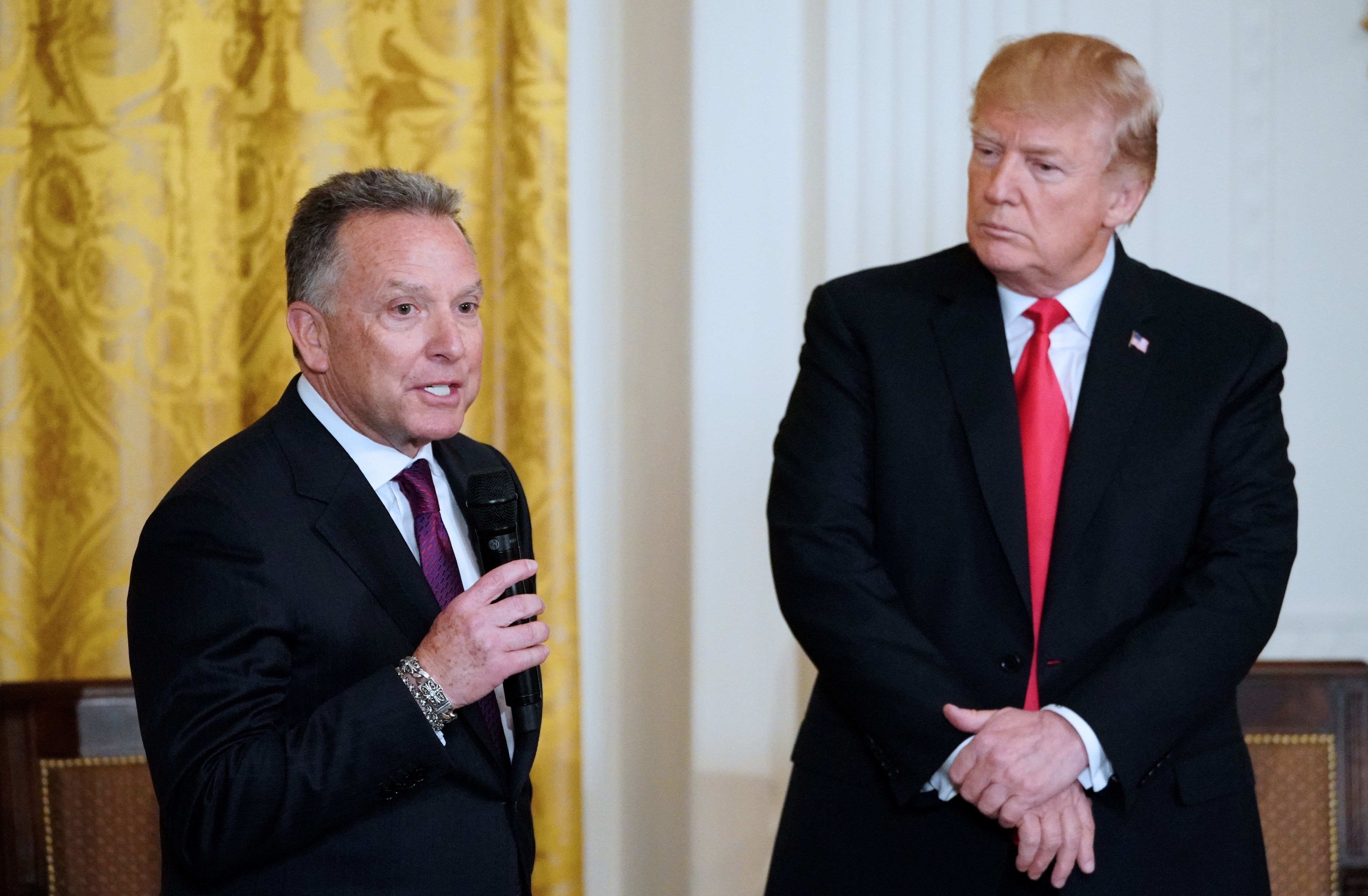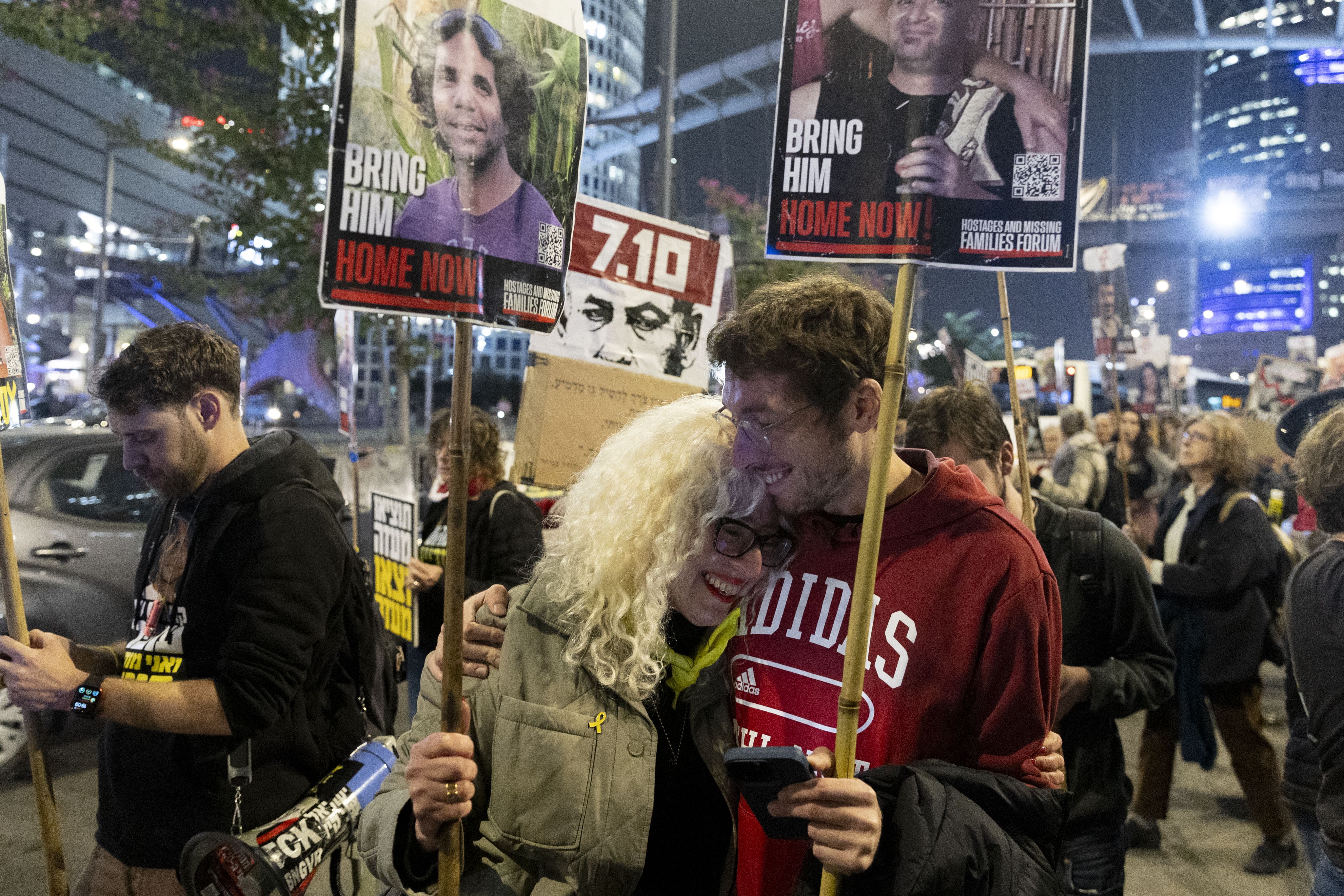Israeli security cabinet approves Gaza hostage and ceasefire deal
The Israeli cabinet will convene on Friday to approve the Gaza hostage and ceasefire deal, which the smaller security cabinet has already approved.
Why it matters: Approval by the full cabinet is the final hurdle before the deal can be implemented. The Israeli Prime Minister's Office said the ceasefire and the process of freeing hostages are expected to start on Sunday at 4pm local time (9am ET).
State of play: The cabinet meeting was moved up from Saturday night at the urging of the director of Israel's Shin Bet intelligence agency, Ronen Bar, according to an Israeli official.
- That timeline would have meant the deal couldn't be implemented until Monday, and Bar urged Prime Minister Benjamin Netanyahu to move more quickly to avoid unexpected complications.
- But moving it up meant convening after the Jewish Sabbath began. The ultra-orthodox members of Netanyahu's cabinet said they would agree to that because the deal is a matter of life and death, the official said.
Driving the news: The Israeli security cabinet convened on Friday morning local time, ahead of the full cabinet meeting, and was briefed on the Gaza hostage and ceasefire deal.
- Netanyahu said during the meeting that he received guarantees from both the Biden administration and the Trump administration that if negotiations over the second phase of the ceasefire and hostage deal fail, and Israel's security demands are not met, Israel would be able to resume the war in Gaza with U.S. backing, an Netanyahu aide tells Axios.
Behind the scenes: Netanyahu's remarks at the security cabinet meeting came after ultranationalist Finance Minister Bezalel Smotrich said he and the cabinet members from his party would vote against the deal but not leave Netanyahu's coalition.
- Sources in Smotrich's party claimed he received assurances from Netanyahu that the war would resume after the initial 42-day ceasefire and the humanitarian aid delivery system for Gaza would be changed to prevent Hamas from controlling the aid.
- Meanwhile, Netanyahu's ultranationalist minister of national security, Itamar Ben Gvir, held a press conference on Thursday and announced he would resign and his party would leave the coalition if the deal was approved. He said he would be ready to rejoin the coalition if Israel were to resume fighting in Gaza after the 42-day ceasefire in the first phase of the deal.
- Both Smotrich and Ben Gvir voted against the deal at the security cabinet meeting, but it still passed easily.
State of play: Ahead of the cabinet meeting Israeli Defense Minister Israel Katz signed an order to release all Israeli settlers who were under administrative detention for allegedly committing and planning terror attacks against Palestinians.
- An Israeli security official who was alarmed by the decision said Katz made it for domestic political considerations and without consultation with the Shin Bet.
- "The decision gives backwind for terrorism and will destabilize the security situation in the West Bank," the official warned.
What's next: Under Israeli law, Palestinian prisoners can't be released from prison without a government vote and a 24-hour period for the public to appeal to the courts. That's why the deal, which involves the release of hundreds of Palestinian prisoners held in Israel, can't immediately take effect after the cabinet vote.
Go deeper: How two feuding presidents combined to get a Gaza deal










































